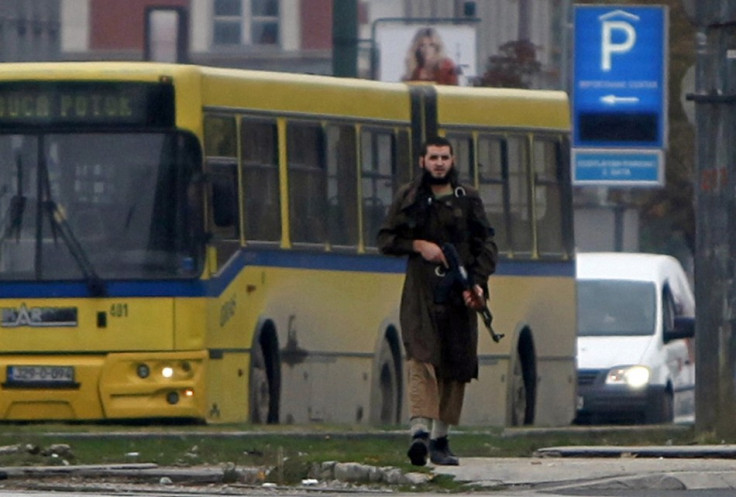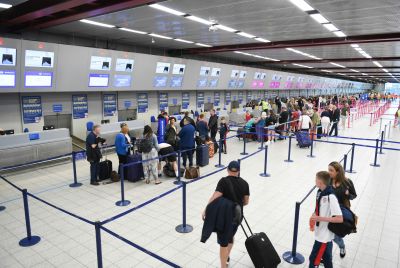Bosnia's US Embassy Attacker Apologises for 'Stupid Act'
A man being re-tried for attacking the US Embassy in Sarajevo in 2011 has apologised for his 'stupid act'.

A Bosnian man being re-tried for an attack on the US Embassy in Sarajevo in 2011 has apologised for his "stupid act".
Mevlid Jasarevic told the court that he had been manipulated and then rejected by his radical Islamist mentors.
"I truly apologise and regret any problems that my acts have caused to anyone," Jasarevic told a Sarajevo court.
"I have been a victim of those who were telling me it was necessary to fight for Islam, to lead jihad," he said, wearing a white shirt and jeans.
"How is it possible that all those who were telling me about jihad are now playing with their children and live free, with their wives, while I have not seen my child for months?"
Jasarevic, 25, fired at the embassy for more than 40 minutes with an automatic rifle, seriously wounding a police officer. The attack sparked fears that, as Bosnia recovered from the wars of the 1990s, its Muslim population was becoming radicalised.
Jasarevic, originally from Serbia, was sentenced to 18 years in prison after being found guilty of terrorism by Bosnia's state court in December last year.
The verdict was withdrawn on appeal in July and a fresh trial was ordered after judged deemed the original trial to be flawed while defence lawyers argues they did not have sufficient access to witness testimony and evidence.
At his first trial, Jasarevic had a long beard and appeared in a traditional Wahhabi robe and cap. He boycotted many hearings, declaring that he only obeyed Allah and did not recognise the court.
In Bosnia, 40% of the population follow Islam and most Bosnian Muslims practice a moderate form of the religion. There has been a notable rise in the number of homegrown Islamist militants emanating from Bosnia, according to analysts.
Jasarevic was a member of the strict Wahhabi brand of Islam, which has risen in prominence after the Bosnian War of 1992-95. He had resided in the northeastern village of Gomja Maoca for three years, an isolated community of Wahhabi believers.
He claims to have embraced Islam as a teenager during a prison term for bank robbery in Austria, where he originally lived throughout his childhood. He told the court that, in Gomja Maoca, he was exposed to videos illustrating the difficulties that Muslims faced in Iraq, Afghanistan and other locations.
"I felt the need to do something, to get attention for the sufferings of the Muslims in the East," he said. "I did not plan this dangerous, tragic and unbelievably stupid and sad act."
He claimed that his radical Islamist mentors abandoned him after he was arrested, telling him that he had "misunderstood" their messages and teachings.
"Believe me, I understood them well and turned their words into acts," Jasarevic said. He stated that he was now willing to assist the authorities in preventing "any youngster from going to fight in Syria".
Jasarevic requested that the court cut his original prison sentence and take into account the fact that he was not aligned with an organised group and acted of his own accord as a "confused young man".
Prosecutors said Jasarevic had plotted and committed a planned terrorist act aimed at injuring people and harming property.
The court will provide its verdict in the case on November 20.
© Copyright IBTimes 2025. All rights reserved.





















